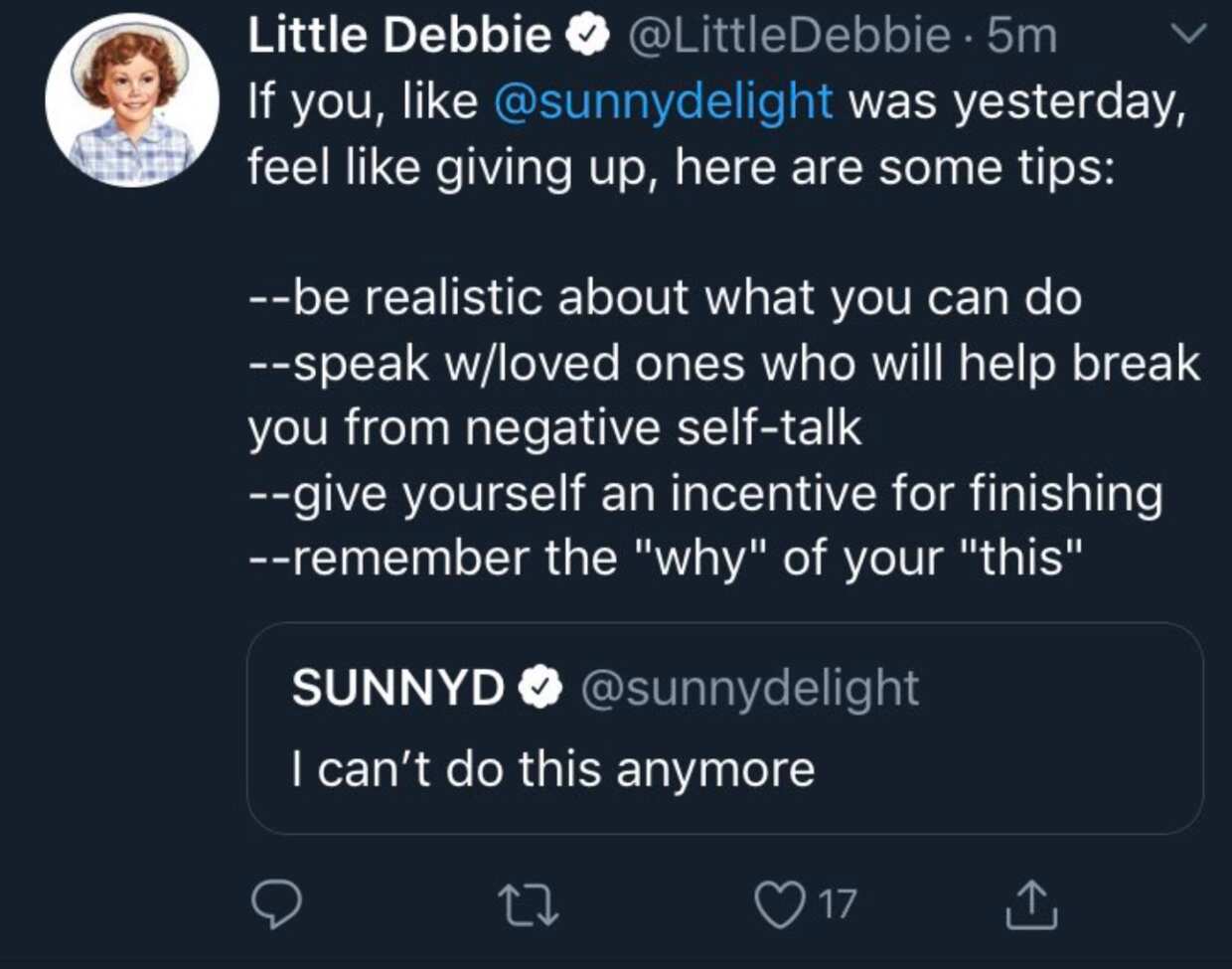During the 2019 US Superbowl, Sunny D a brand of reconstituted orange juice (here’s where you’ve heard of them before) tweeted out this.
Besides racking up hundreds of thousands of likes, it also baited other food brands to jump on the bandwagon.

Source: Twitter
Brands are friends, no food
The trend of brands appropriating youth culture on social media was most likely kicked off by US diner chain Denny’s Tumblr circa 2014.
Far from the NSFW-banning platform it is today, Denny’s lent far into Tumblr’s alternative community by engaging in memes Internet in-jokes.
Internet in-jokes. And just general Tumblr oddness.
And just general Tumblr oddness. None of these posts were advertising a specific product but it was extremely effective in cultivating an online following for the brand. Denny’s as a corporation had a personality and translated into monetary gain.
None of these posts were advertising a specific product but it was extremely effective in cultivating an online following for the brand. Denny’s as a corporation had a personality and translated into monetary gain.

Source: Tumblr

Source: Tumblr

Source: Tumblr
Prescribing human characteristics to a brand’s online presence soon became the hot new thing.
Before we knew it we had fast food brand Wendy’s roasting people on Twitter.
Steak-umms (processed beef product) getting meta on the whole thing.
Corporations capitalising on culture
It might be more prevalent with US brands but Australian arms are starting to pick up on the tactic. Like Taco Bell Australia who ventured Down Under last year.
Advertising executive Dee Madigan says that in order for this kind of online strategy to work they to really commit. Which might be why we’re seeing brands fall over themselves to have the most relatable/obscure/memeable Twitter feed.
“Brands want people to be friends with them but people don’t want to be friends with the brands,” she says.
“So they have to work hard and be prepared to be brave, which very few of them are on twitter.”
Madigan points towards The NT News as one of the few Australian brands that are successfully using the trope, carving themselves a firm spot in the Twitter zeitgeist.
While there are brands that do it well, Madigan doesn't foresee a future where all brands have a similar schtick.
“What will happen is there will be a couple of cases where it goes badly and they’ll get nervous,” she said.
“To do it well you have to get close to the edge and there will be people that go over that edge. That’s when it becomes a problem.”
Which brings us back to Sunny D. They've copped some backlash from the Twitterverse as people call out the brand for commodifying mental illness.
So, should brands be encouraged to interact with consumers like they’re familiar or should they stick to hocking snack cakes?


